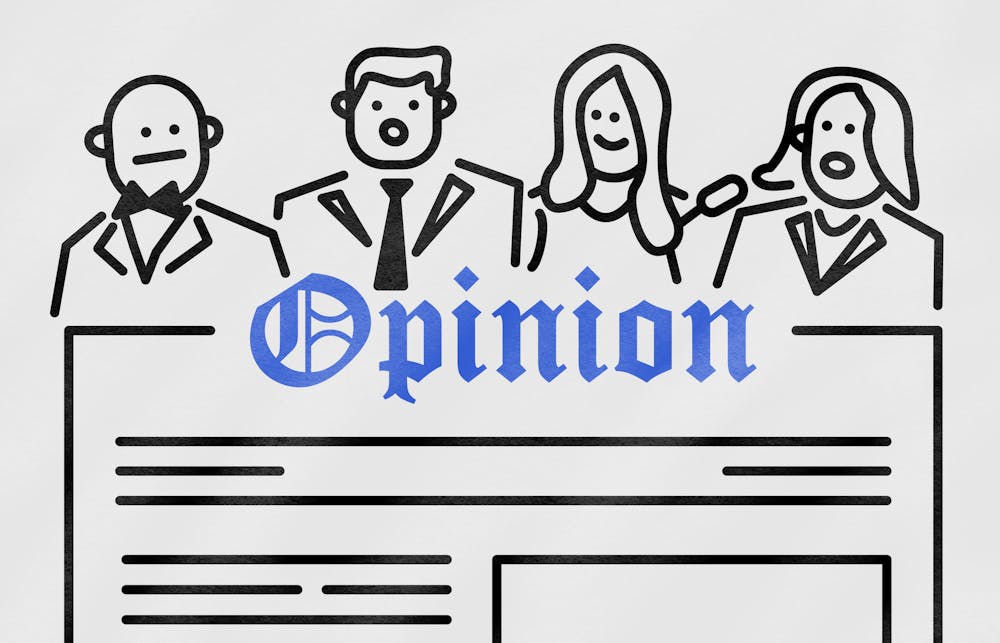To endorse, or not to endorse, that was the question.
The United States has come to the end of another long, tenuous election season. For the most part, the events of the last few months were typical of what we have come to expect — celebrities picked sides, and our televisions were bombarded with commercials. But there was at least one notable change. Within the span of a few days, both the Los Angeles Times and The Washington Post announced that they would not be endorsing a presidential candidate. Breaking with decades of tradition, both papers ignited a firestorm which has brought questions about bias and trust in news media to the forefront of national discourses. The leadership of both papers attempted to frame Editorial Board endorsements as actions which promote the perception of bias and undermine readers’ trust in news.
And while the actions of both The Post’s and the LA Times’ leadership constitute a type of censorship which is specifically directed towards editorial boards, the logic which underpins this censorship can be used to undermine the work of opinion journalists more broadly. We, as student journalists, believe the decision to censor endorsements constitutes a complete misunderstanding of opinion journalism — a misunderstanding that problematically simplifies our search for truth.
It is easy to think of this trend towards the disenfranchisement of editorial boards as a product only of this presidential election. It is not. In many ways, these past few weeks are simply emblematic of a larger and intentional deprioritization of opinion journalism across the industry. In 2022, two of the largest newspaper chains explicitly deprioritized their opinion sections — one group of newspapers greatly scaled back the frequency of opinion columns, and another announced that they would no longer endorse for presidential elections. And as recently as October, The New York Times — which endorsed Kamala Harris — revealed that they would no longer endorse for local and state elections in New York. In short, The Post’s and the LA Times’ decisions to not endorse have not occurred in a vacuum and cannot be separated from a larger deprioritization of opinion sections at large.
Let us be clear — opinion journalism is not the same as news journalism. Newspapers have long made very conscious decisions to erect a firewall of sorts between subjective and objective sections, with both contributing to the larger mission of seeking the truth. News journalists are expected to objectively report the facts and solicit a wide array of sources. In contrast, the mandate of opinion journalists is one of subjectivity. These journalists are charged with enriching factual and objective news coverage by carefully crafting subjective perspectives and rationales which model debate and continue conversations.
Unsurprisingly, the critique often leveled at opinion journalism is that instead of seeking the truth, as true journalism does, opinion journalism prescribes a certain way of thinking. In fact, this is the kind of critique which Jeff Bezos leveled at The Post’s editorial board when prohibiting their endorsement. What is ironic in Bezos’s critique, and others like it, is that in taking to The Post’s opinion pages to critique opinion journalism, he implicitly disproved the allegation that opinion pages prescribe truth rather than enhance our search for it. Bezos himself contributed to an opinion page which uplifts a rainbow of conflicting perspectives.
And this is a good thing. Any opinion desk worth its salt not only fails to prescribe one “correct” opinion but will likely leave its reader with just as many questions as answers. This is a healthy process for our democracy. By advancing competing perspectives and crystalizing tough questions, opinion journalists help us engage in collective conversations. And we should all agree that our increasingly polarized moment demands more conversation, not less. This is why, in our view, to censor opinion journalism is to fundamentally misunderstand how journalism itself can contribute to the democratic project.
Defending editorial boards and opinion pages, should not be seen as minimizing ongoing struggles within the field of journalism, namely data which suggests a deep distrust of news media. There are many societal reasons for this distrust, not the least of which is the immediacy of misinformation on social media. Journalists, however, have a role to play in shaping public perception of our craft — simply blaming factors outside of our control gets us nowhere. Endorsements are a perfect example of the risk that comes with ignoring distrust — fail to fully explain the purpose of endorsements, and people start to believe they should not exist at all. As such, journalists must be actively engaged in educating readers about the importance and relevance of our work, especially when that work comes under fire from the powers that be.
As this election season comes to a close, both The Post and the LA Times would like us to believe that they are returning to their roots by not writing endorsements. This could not be further from the truth. Not only have endorsements been a part of nearly every election cycle in recent memory, but now more than ever our country benefits from clear-eyed conversations about political candidates and their platforms. Endorsements, editorial boards and opinion sections writ large do not exist to the detriment of the journalism industry. Rather, they not only complement but also actively enhance objective reporting, journalism and democracy as a whole. Truth and progress cannot be found solely in the pages of a news article, we uncover truth and create progress through the conversations we have and the ideals we defend.
The Cavalier Daily Editorial Board is composed of the Executive Editor, the Editor-in-Chief, the two Opinion Editors, their two Senior Associates and an opinion columnist. The board can be reached at eb@cavalierdaily.com.







